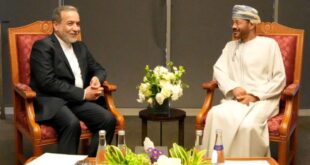 TEHRAN (Fars News Agency)- Iranian Parliament Speaker Gholam Ali Haddad Adel warned that if the UN Security Council decides to increase pressures on Iran, the Islamic Republic will revise its cooperation with the International Atomic Energy Agency (IAEA) accordingly.
TEHRAN (Fars News Agency)- Iranian Parliament Speaker Gholam Ali Haddad Adel warned that if the UN Security Council decides to increase pressures on Iran, the Islamic Republic will revise its cooperation with the International Atomic Energy Agency (IAEA) accordingly.
“The more pressure they exert on the Islamic Republic of Iran, the more serious we will grow in revising our cooperation with the Agency,” Haddad Adel said during a press conference here on Wednesday and in response to a question about the Iranian parliament’s likely reaction to any UN Security Council resolution against the Islamic Republic.
“What is the point in a kind of cooperation which imposes more restrictions on us but grants no benefits or possibilities,” he asked.
The chief legislative official said any UN Security Council resolution against Iran would be a product of the United States’ pressures on the other members of the Council, adding, “We believe that the US pressures are a reaction to the independence of Islamic Republic of Iran as Washington has always sought excuses against Iran ever since the onset of the Islamic Revolution.”
Asked about the reason underlying Iran’s policy for switching its hard currency reserves from dollar to euro, he said that the policy has long been pursued by former Islamic Republic officials and economic experts as it rids Iran’s dependency on dollar.
Praising the measure, the speaker said a major portion of the country’s payments and disbursements are now made in euro, while oil sales are still in dollars.
He said government is striving to form a combination of dollar and euro in the country’s hard currency reserves.
Iran is shifting its foreign currency reserves from dollars to euros in response to US-led pressure on its economy.
In a widely expected move, Tehran said it would use the euro for all future commercial transactions overseas.
Analysts said Tehran had been steadily shifting its foreign-held assets out of dollars since 2003 and that Monday’s announcement was likely to affect the value of the dollar, which has weakened significantly in recent months.
Iranian government spokesman Monday said all its foreign exchange transactions would be conducted in euros and its national budget would also be calculated in euros as well as its own currency.
“There will be no reliance on dollars,” said Gholam Hussein Elham.
“This change is already being made in the currency reserves abroad.”
The currency move might apply to oil sales although it is expected that Iran, the world’s fourth largest oil producer, will still accept oil payments in dollars. Yet, Tehran has urged Iranian businesses to open letters of credit in euros in the future.
Washington has sought to exert financial pressure on Iran, which it accuses of flouting international law by trying to acquire military nuclear technology.
Tehran denies this, saying its nuclear research is for purely civilian uses.
Most international banks have stopped dollar transactions with Iran.
The dollar slipped slightly against the euro in New York trading although some analysts said they expect the reaction to be severe to some extent.
 Eurasia Press & News
Eurasia Press & News



